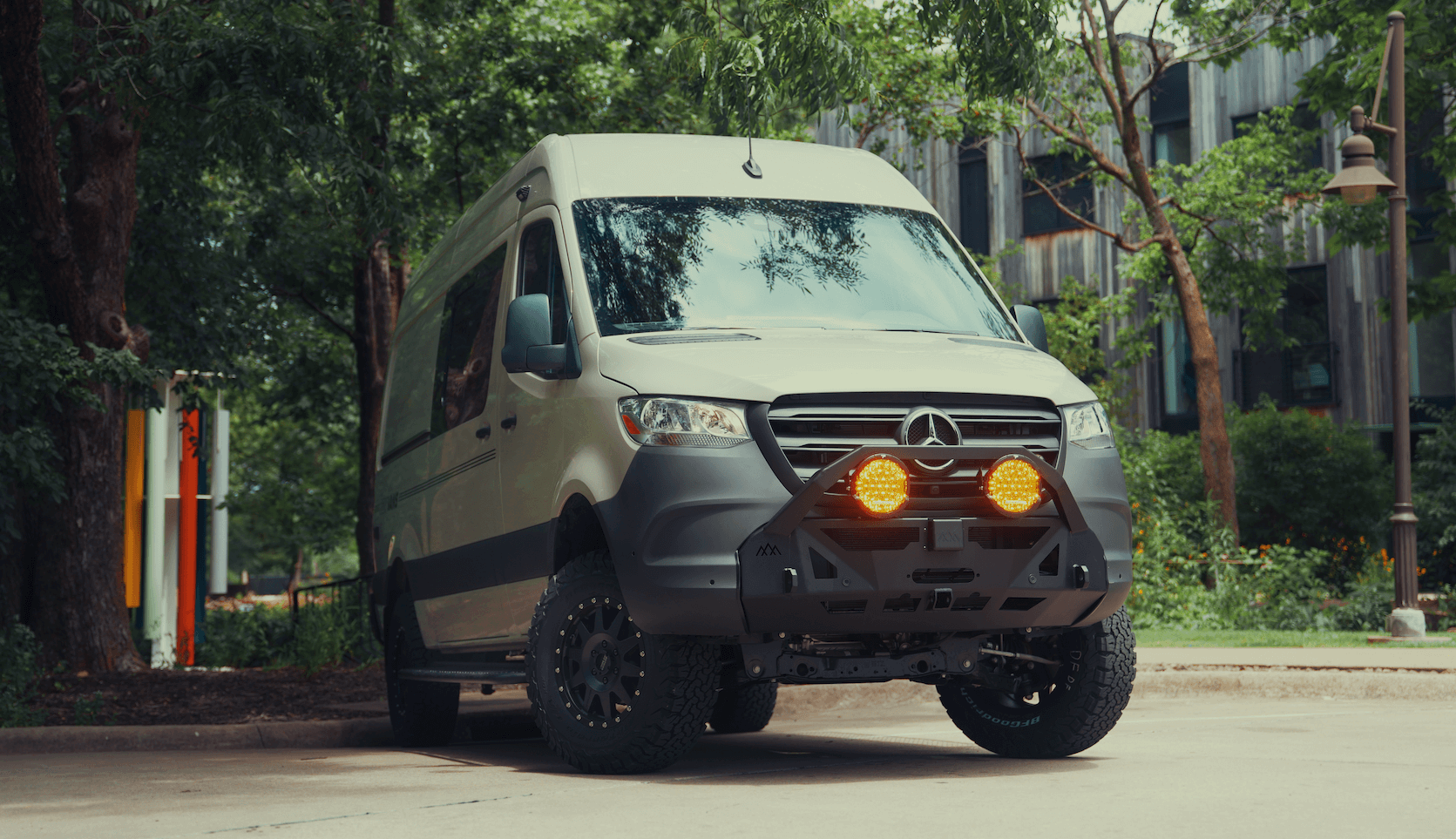Recreational Vans

Modular vans start with a bare or lightly finished cargo space, then add bolt in furniture and systems that can be installed, moved, or removed as needs change. Instead of permanent cabinets glued and screwed into the body, a camper module uses mounting rails, L track, and bracketry that secures components while keeping the shell serviceable. This keeps body panels accessible for maintenance, reduces squeaks, and allows deep cleaning after rough trips. It also helps resale since buyers can choose a layout that fits their life rather than one locked in place.
A core strength of modular vans is space efficiency. Components share structure and service paths, so a bed platform can hide water tanks, a galley can house batteries, and a seat base can route heat ducts. Well designed modules align widths with common platforms. That means you get tight fitment without strange gaps that waste cargo volume. When done right the interior feels cohesive, not like a pile of boxes.
Start with people count, activities, and seasons. A couple who trail rides on weekends needs a different camper module than a family planning long tours through shoulder seasons. Define three zones first, sleep, cook, and store. Next, map weight to the van’s axle ratings to keep handling predictable. Heavy items like batteries, water, and bikes should sit low and forward between the axles. Leave a clear service path to fasteners, fuses, and filters so upkeep is painless.
Materials matter. Aluminum extrusion frames with panel insets deliver strength without excess weight and are easy to reconfigure. Marine plywood with durable laminate keeps a warm feel and resists swelling. Powder coated steel works well for high stress mounts like seat bases and recovery gear. Soft goods like insulated window covers and modular privacy curtains add comfort without clutter.
A modular RV power plan should match actual load. Add up watt hours for fridge, lights, fans, pumps, and device charging, then size lithium capacity for at least two days without charging as a safety margin. Pair with a smart DC to DC charger for alternator input, rooftop solar sized to daily draw, and an inverter only as large as the largest continuous load. Ventilation is as important as heat. A roof fan plus cracked windows keeps moisture down, while a compact diesel heater with proper combustion routing warms the cabin without taxing the battery.
Common modules include a convertible bed that flips to a sofa, a galley with sink and induction cooktop, a gear garage with slide out trays, and a stand alone shower pan that stows when not in use. Quick release mounts let you swap a bike tray for a drawer stack in minutes. Ceiling tracks accept cabinets or soft bins so you can change storage density by season. A pass through bulkhead with a soft door can improve temperature control on cold nights while keeping access to the cab.
Safety should not be an afterthought. Any seat with belts must be anchored to certified mounts and tested hardware. Gas systems need proper ventilation and detection if used at all, though many modern builds run full electric with induction cooking. Electrical wiring should be fused at the source, loomed, labeled, and isolated from sharp edges. Water lines should be food grade and winterized with easy drain points.
Every platform has a payload ceiling. Subtract driver, passengers, fuel, and common cargo, then allocate the remainder to your camper module. A typical compact package with bed, galley, 200 amp hours of lithium, 20 gallons of water, and insulation can add several hundred pounds. Use lighter materials where possible and avoid stacking heavy accessories high on the walls. Balance side to side weight to keep steering feel consistent.
Benefits include flexibility, easier cleaning, faster service, and the ability to iterate as your travel style evolves. Many owners start simple with a sleep system and portable power, then add a fixed galley and integrated battery when trips get longer. Removable gear also means you can reclaim cargo space for everyday life. On the other hand, poor module fit or mismatched hardware can introduce rattles. Low quality fasteners or thin panels can fatigue on rough roads. Thoughtful design with quality components solves these issues.
Acoustics and insulation deserve special planning. Closed cell foam behind wall panels reduces resonance, while fiber insulation in cavities controls temperature. Isolate panel edges with trim to avoid vibration. Choose latches with positive engagement so doors stay shut on washboard. Soft close hardware preserves longevity and keeps night time noise low.
When you decide the research phase is over and it is time for a dialed interior that works every day, OZK Customs builds, tests, and installs modular systems that fit your platform and your travel style. Our team in Fayetteville, Arkansas designs bed systems, galleys, power, water, and storage that bolt to engineered anchor points, making service and future changes straightforward. We focus on quiet interiors, clean wiring, and components that hold up to real mileage and mixed weather.
If you want a ground up solution, explore our custom build van. For buyers who prefer a finance friendly route, review our mainstream vans options that can be tailored with modular interiors. To compare layouts and plan the next step, start with our core overview at recreational vans.
Ready to put the pieces together without guesswork and delays. Share your plan and timeline, and we will turn your modular vision into a cohesive van that is quiet, capable, and easy to maintain, so your first night out feels like trip number fifty.
Ready to turn your platform into a modular van built for real trips, not just photos? Share your timeline and must haves. OZK Customs will outline a tailored plan, cost, and build path so you can pick up a dialed rig and drive straight to camp.
ADDRESS:
6159 E Huntsville Rd, Fayetteville, AR 72701
PHONE:
(479) 326-9200
EMAIL:
info@ozkvans.com